
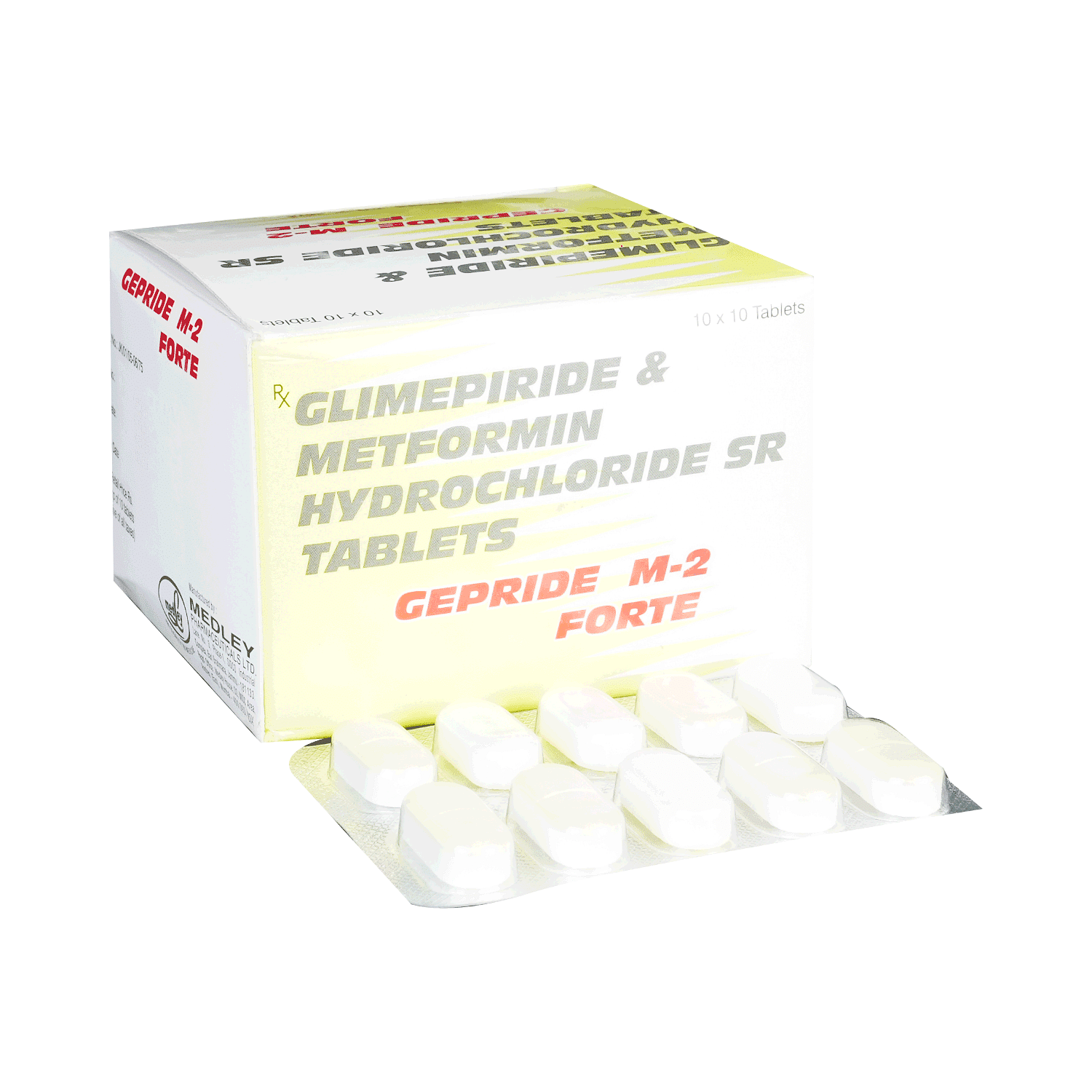


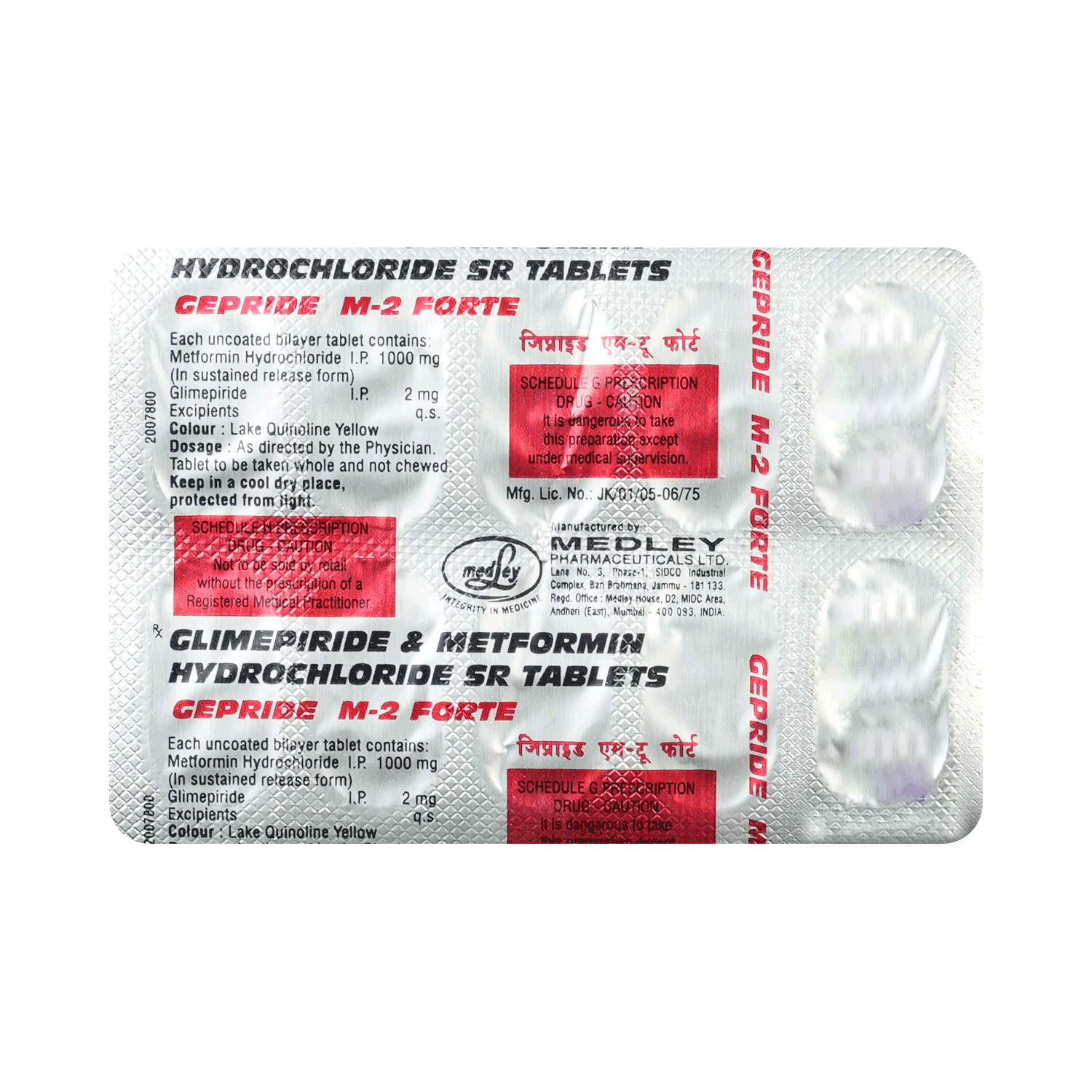
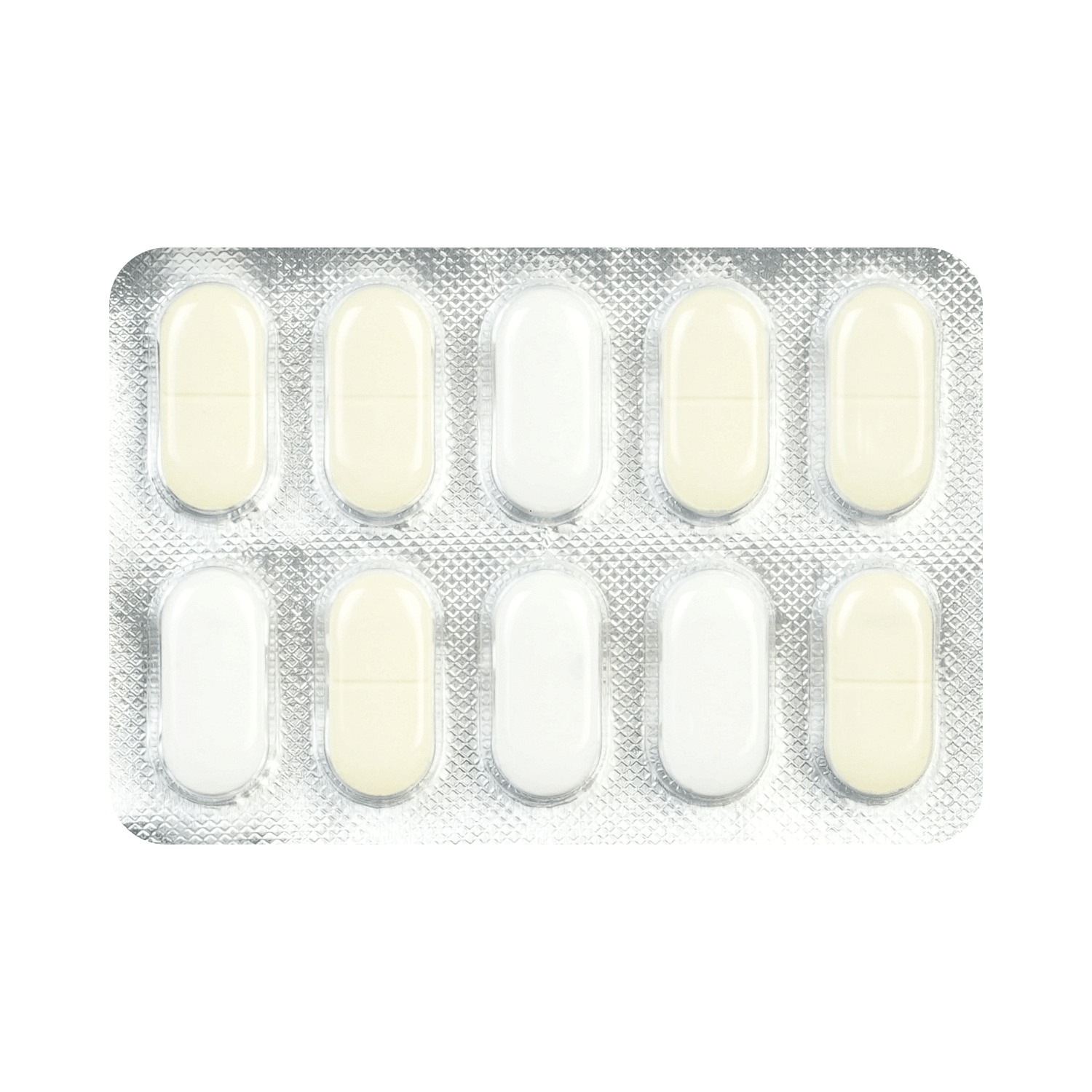
Gepride M-2 Forte Tablet
Manufacturer
Medley Pharmaceuticals
Salt Composition
Glimepiride (2mg) + Metformin (1000mg)
Key Information
Short Description
Gepride M 2 Forte Tablet SR is a combination of two medicines used to treat type 2 diabetes mellitus in adults. It helps control blood sugar levels in people with diabetes.
Dosage Form
Tablet SR
Introduction
Gepride M 2 Forte Tablet SR belongs to a category of medicines known as anti-diabetic drugs. It is a combination of two medicines used to treat type 2 diabetes mellitus in adults. It helps control blood sugar levels in people with diabetes.
Directions for Use
Take this medicine in the dose and duration as advised by your doctor. Swallow it as a whole. Do not chew, crush or break it. Gepride M 2 Forte Tablet SR is to be taken with food.
Safety Information
Side Effects
No common side effects listed.
Alcohol Warning
It is unsafe to consume alcohol with Gepride M 2 Forte Tablet SR.
Breastfeeding Warning
Gepride M 2 Forte Tablet SR is unsafe to use during breastfeeding. Data suggests that the drug may cause toxicity to the baby.
Pregnancy Warning
Gepride M 2 Forte Tablet SR may be unsafe to use during pregnancy. Although there are limited studies in humans, animal studies have shown harmful effects on the developing baby. Your doctor will weigh the benefits and any potential risks before prescribing it to you. Please consult your doctor.
How it works
Gepride M 2 Forte Tablet SR is a combination of two antidiabetic medicines: Glimepiride and Metformin. Glimepiride is a sulfonylurea which works by increasing the amount of insulin released by the pancreas in order to lower the blood glucose. Metformin is a biguanide which works by lowering glucose production in the liver, delaying glucose absorption from intestines and increasing the body's sensitivity to insulin.
Quick Tips
You should continue to exercise regularly eat a healthy diet and take your other diabetes medicines along with Gepride M 2 Forte Tablet SR.
Related Medicines
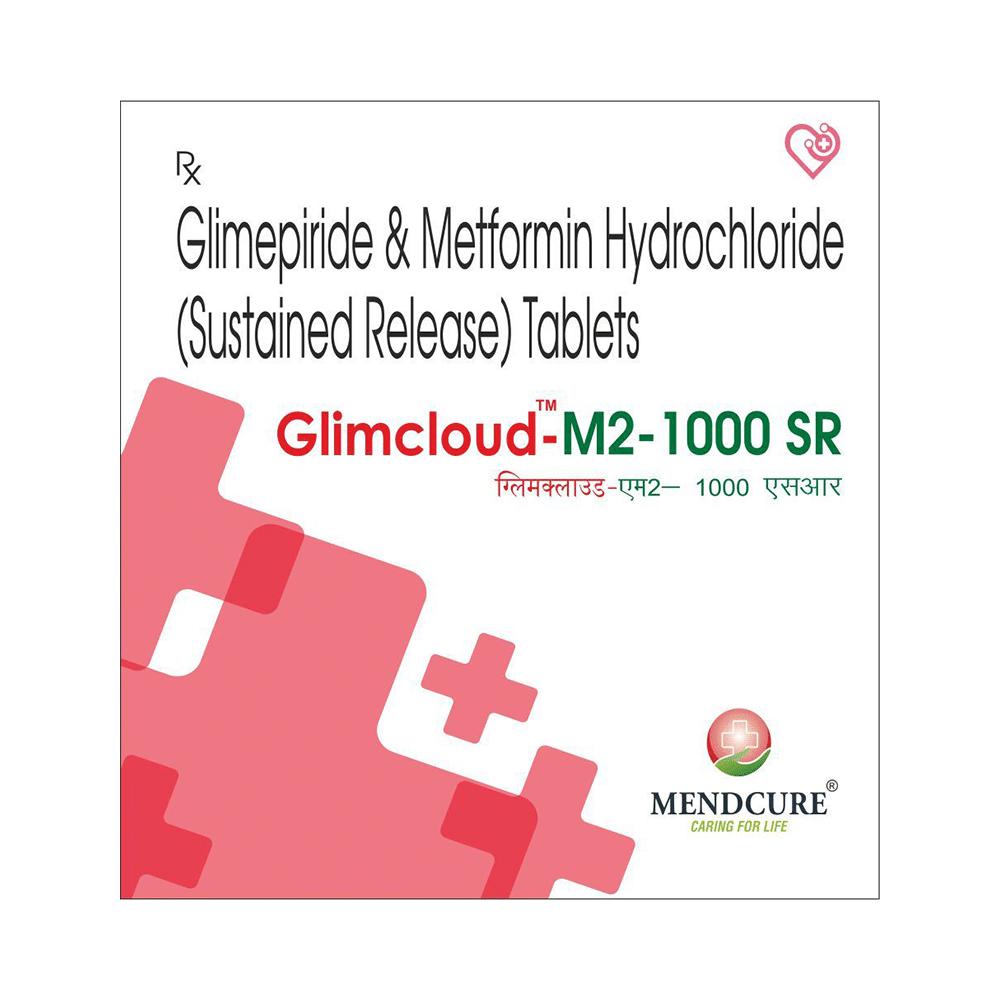
Glimcloud-M2-1000 SR Tablet

Glipark M 2mg/1000mg Tablet SR

Viglim M Forte 2mg/1000mg Tablet SR

Glimian MF 2mg/1000mg Tablet SR

Glucodrive G Forte 2mg/1000mg Tablet SR

Glimibose-M Forte 2mg/1000mg Tablet SR

Aedi-Glim M2 Tablet SR
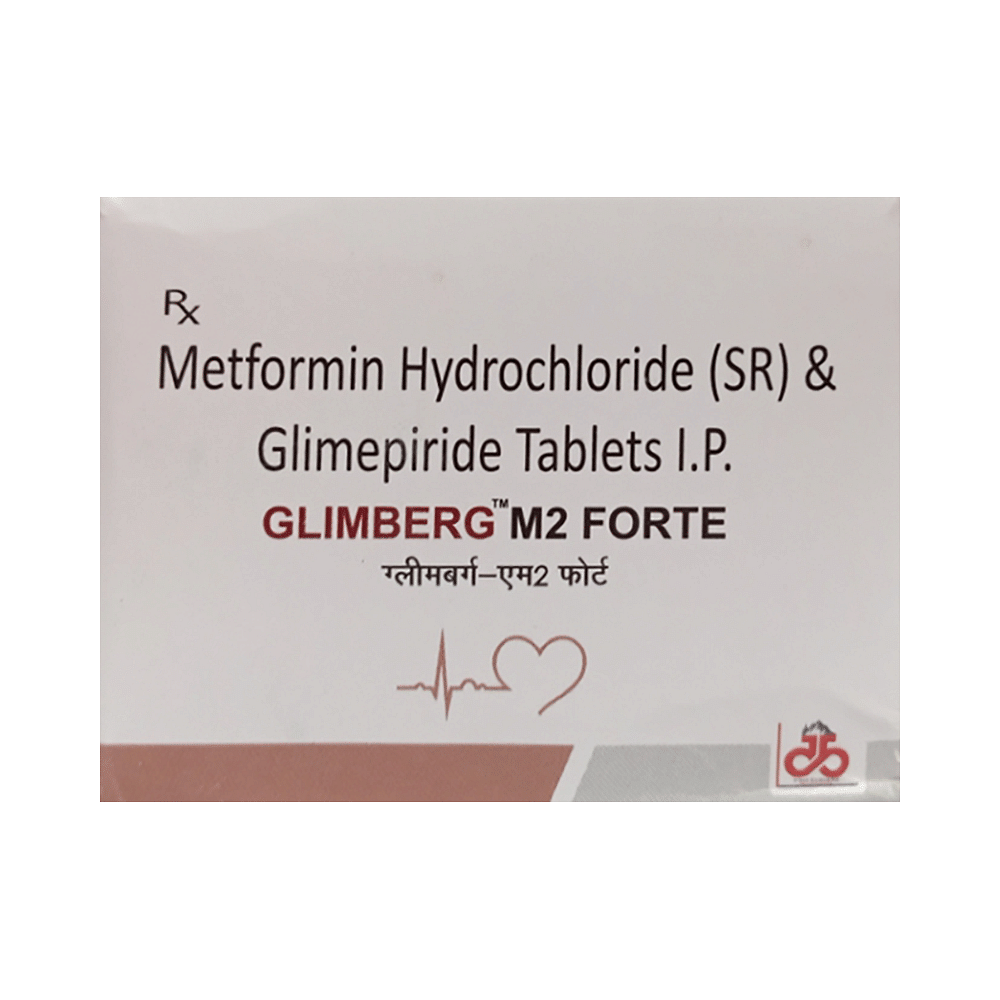
Glimberg M2 Forte Tablet SR

Glimrox M Plus 2mg/1000mg Tablet SR
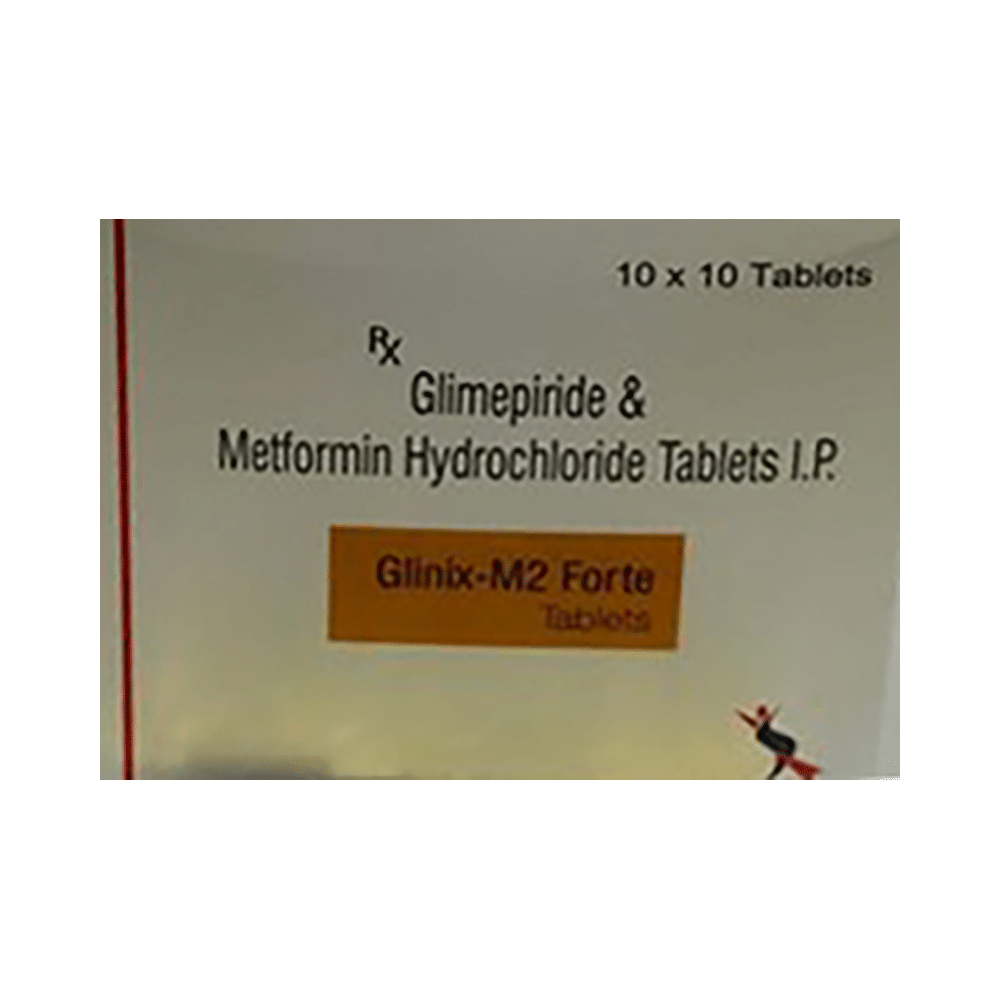
Glinix-M2 Forte Tablet SR
Frequently asked questions
What are the recommended storage conditions for Gepride M 2 Forte Tablet SR?
Keep this medicine in its original container or packaging, tightly closed. Store it according to the instructions on the packaging label. Do not use expired medication and dispose of unused medication safely.
Can the use of Gepride M 2 Forte Tablet SR lead to lactic acidosis?
Yes, the use of Gepride M 2 Forte Tablet SR can lead to lactic acidosis. This is a rare but serious medical condition caused by an increase in lactic acid levels in the blood. It may occur in patients with underlying kidney disease, liver problems, or those taking large amounts of alcohol. If you experience symptoms such as muscle pain, weakness, dizziness, fatigue, cold extremities, difficulty breathing, nausea, vomiting, stomach pain, or slow heart rate, consult your doctor immediately.
What is Gepride M 2 Forte Tablet SR?
Gepride M 2 Forte Tablet SR contains two active ingredients: Glimepiride and Metformin. This combination medicine is prescribed for type 2 diabetes mellitus (DM). It helps regulate blood sugar levels in adults when used in conjunction with a healthy diet and exercise routine. Glimepiride increases insulin release from the pancreas, while Metformin reduces glucose production by the liver and improves insulin sensitivity.
What are the possible side effects of Gepride M 2 Forte Tablet SR?
Common side effects include hypoglycemia (low blood sugar), altered taste, nausea, stomach pain, diarrhea, and headache. While rare, it may also lead to severe complications like lactic acidosis or vitamin B12 deficiency.
Can the use of Gepride M 2 Forte Tablet SR cause Vitamin B12 deficiency?
Yes, long-term use of Gepride M 2 Forte Tablet SR can lead to a Vitamin B12 deficiency. It interferes with the absorption of Vitamin B12 in the stomach. Untreated, this may result in anemia, nerve problems, tingling or numbness in hands and feet, weakness, urinary problems, changes in mental status, and difficulty maintaining balance (ataxia). To avoid these issues, consider supplemental Vitamin B12 intake.
Can the use of Gepride M 2 Forte Tablet SR cause hypoglycemia?
Yes, Gepride M 2 Forte Tablet SR can cause hypoglycemia (low blood sugar level). Symptoms include nausea, headache, irritability, hunger, sweating, dizziness, a fast heartbeat, and feelings of anxiety or shakiness. This is more likely to occur if you skip meals, drink alcohol, exercise excessively, or take other medications simultaneously with Gepride M 2 Forte Tablet SR. Regular blood sugar monitoring is crucial for managing this.
Is it safe to take alcohol while I am also taking Gepride M 2 Forte Tablet SR?
No, it's not advisable to consume alcohol when taking Gepride M 2 Forte Tablet SR. Alcohol can lower blood sugar levels and increase the risk of hypoglycemia. It may also contribute to lactic acidosis.


